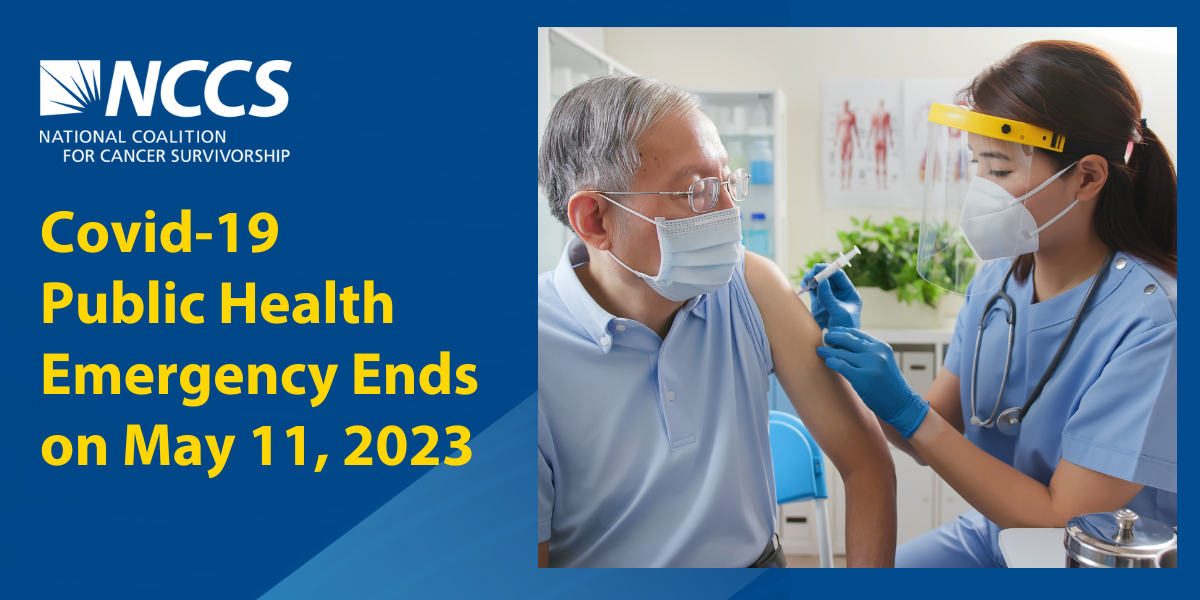Accessing COVID-19 Resources After the Public Health Emergency Ends
The COVID-19 public health emergency (PHE), which has been in effect since early 2020, will end on May 11, 2023. The federal government may continue to distribute free COVID-19 tests from its supply of purchased COVID-19 treatments, tests, and vaccines through the United States Postal Service, states, and other community partners. While this supply remains, the Centers for Disease Control and Prevention’s (CDC) Increasing Community Access to Testing program will continue providing access to COVID-19 testing in communities at greatest risk.
As long as the federal government’s purchased supply of COVID-19 treatments and vaccines last, they will remain free to all. Once the supply runs out, the administration will transition purchases to the private market. According to a fact sheet and Frequently Asked Questions document released by the US Department of Health and Human Services (HHS), here’s what individuals can expect:
Authorizations
- The US Food and Drug Administration’s authorizations for COVID-19 products (e.g. tests, vaccines, and treatments) will not be affected.
COVID-19 Vaccines
- Vaccines still free of charge while federal supply lasts.
- Once the federal supply is gone, those with private insurance will continue to receive COVID-19 vaccines with no out-of-pocket costs since they are considered a preventive health service by most private insurance plans. However, patients may experience costs if they see an out-of-network provider.
- Medicare Part B will continue to cover COVID-19 vaccines at no cost. People with Medicare Advantage will pay nothing if they receive vaccines from an in-network provider.
- Medicaid will continue to cover COVID-19 vaccines at no cost.
- Costs may become a barrier for uninsured and underinsured adults when the federal supply is depleted. However, on April 18, HHS announced a new “HHS Bridge Access Program For COVID-19 Vaccines and Treatments” to help address this issue, but full details are not yet available.
COVID-19 Treatments
- Those with private insurance will face cost-sharing requirements for COVID-19 pharmaceutical treatments once the federal supply is depleted.
- Medicare beneficiaries may face cost-sharing requirements for certain COVID-19 pharmaceutical treatments once the federal supply is depleted.
- Medicaid will continue to cover COVID-19 pharmaceutical treatments without cost sharing through September 30, 2024. After that, coverage and cost sharing may vary by state.
- Costs may become a barrier for uninsured and underinsured adults when the federal supply is depleted. However, on April 18, HHS announced a new “HHS Bridge Access Program For COVID-19 Vaccines and Treatments” to help address this issue, but full details are not yet available.
COVID-19 Testing
- Private insurance will no longer be required to cover at-home and lab-conducted COVID-19 tests without cost sharing. At-home tests may become more costly, but some health plans could choose to continue covering them. For lab-conducted tests, the test and associated doctor’s visit may both be subject to cost sharing, and some insurers may limit the number of covered tests or require tests be done by in-network providers.
- Medicare beneficiaries enrolled in Part B will continue to have coverage without cost sharing for lab-conducted COVID-19 tests when ordered by a provider, but there may be cost sharing for the associated doctor’s visit. Current access to free at-home COVID-19 tests will end.
- Medicaid will provide coverage without cost sharing for at-home and lab-conducted COVID-19 tests until September 30, 2024, after which coverage may vary by state.
Data Sharing
- HHS will no longer have authority to require labs to report COVID-19 testing data, which may impact the CDC’s ability to accurately measure percent positivity.





